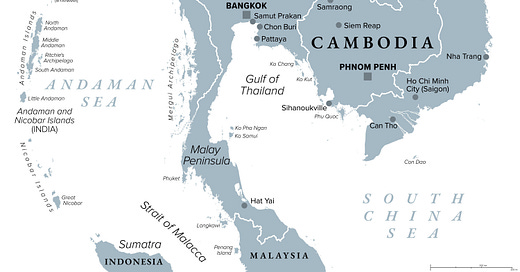Follow the money: Where are the criminal ringleaders who profit from misery in the Asian fraud factories?
The Asian Crime Century briefing 105
There is a growing volume of news and research reports into the online scams, online illegal betting (and other gambling), and people trafficking involved in the fraud factories of Asia. The increased interest in the subject from news organisations may be due to the expansion of the target victims around the world to include people in the Americas and E…



